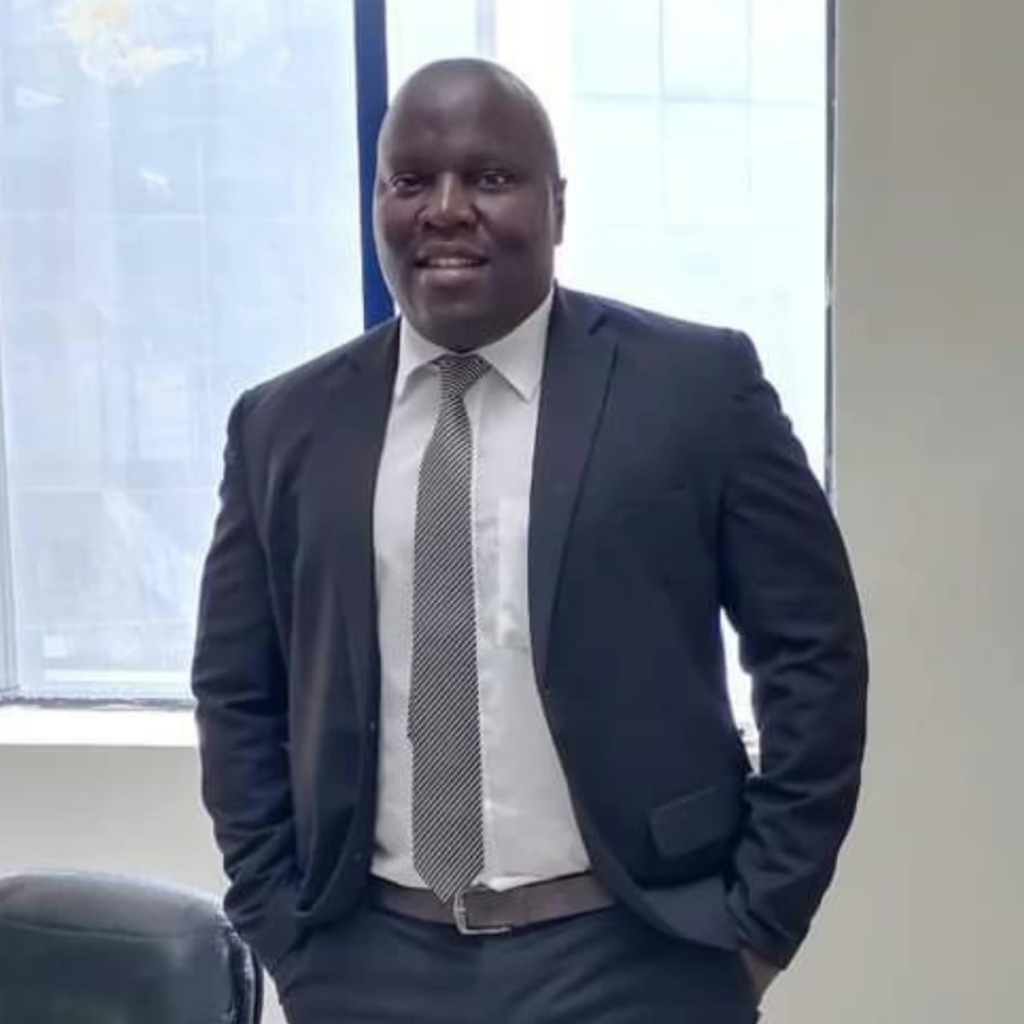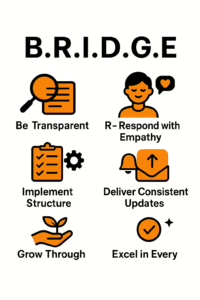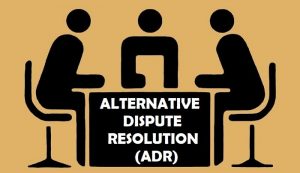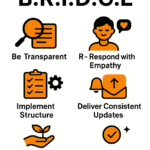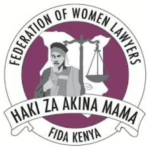June is Global Men’s Mental Health Awareness Month—a time dedicated to highlighting the unique mental health challenges faced by men and boys. According to a joint article by Population Services Kenya (PS Kenya) and the Ministry of Health (MoH), men in Kenya have a significantly higher suicide rate than women. The article attributes this to deeply rooted cultural norms that equate masculinity with stoicism and resilience while discouraging vulnerability—an attitude that makes it harder for men to seek help. The stigma surrounding mental health diagnoses only worsens the situation.
In May 2025, during World Mental Health Awareness Month, we spoke to Samuel Ochieng Okeyo, an Advocate of the High Court, legal entrepreneur (founder of Samuel Ochieng & Company Advocates), and Chairperson of Serene Minds Organization. Samuel has lived with a mental health diagnosis for over 25 years.
He was diagnosed with Bipolar 1 Mood Disorder—arguably one of the most debilitating mental health conditions—in 2000. (Read more about his tumultuous yet empowering journey here.)
In this follow-up, Samuel reflects on the entrenched stigma around mental illness in Kenya, the cultural shifts needed to foster more inclusive professional spaces, and the role of leadership—particularly the Law Society of Kenya (LSK)—in creating safer, more humane workplaces for lawyers at all levels. He also shares how he’s walking the talk through Serene Minds Organization, a community-based initiative committed to challenging stigma and connecting those managing mental health conditions with support and solidarity.
Mental Health Awareness and Stigma in Kenya’s Legal Space
Samuel has faced his share of stigma from diverse quarters since he was diagnosed with bipolar 1 disorder 25 years ago. Mental health awareness was at its lowest then. However, the question remains: have things changed? Moreover, how does Kenya’s legal space respond to mental health issues beyond general awareness? Do lawyers with mental health issues face stigma in daily practice?
Mental health disorders are often not symptomatic at first glance. As Samuel points out, most advocates in the profession are unaware of his Bipolar 1 disorder diagnosis. However, his conscious choice to be a voice for people battling mental health disorders compelled him to share his diagnosis. Unfortunately, his experience after disclosure shows that stigma against people battling mental health is rife within the legal space and society at large.
“I’ve had instances where I’m conversing with fellow advocates and they say to me, ‘because of your mental disorder, I will not engage you further.” Moreover, he has also been the subject of crass jokes such as, “Are the medications for madness out of supply?”
Another hefty price he’s had to pay for being open about his diagnosis is that he gets fewer clients than other lawyers of his calibre would. “I know this for a fact because I’ve had clients referred to my law firm, but when they establish that I’m diagnosed with bipolar 1 disorder while conducting due diligence, they suddenly refuse to engage me. Moreover, they often report back to whoever referred them to me and tell them that they’re uncomfortable engaging a lawyer with a mental health disorder.”
Samuel confesses that most of his clients are from the global north, and they appreciate that bipolar disorder simply denotes that one has a chemical imbalance in the brain, and does not in any way touch on their intelligence. “The fact that you’re battling a mental health disorder may allude to your intelligence and creativity, simply because you have depleted the resources in your brain, hence, you need medication to supplement these resources.”
All these factors bothered Samuel at the beginning. However, he is now unfazed by the stigma and takes it all in stride. Nonetheless, he chooses to be a voice for people battling mental health- just because he endured stigma, it doesn’t mean it’s okay to stigmatize a vulnerable group. Therefore, he chooses to fight for others to have it easier and thrive in a more inclusive space than he did. “I’ve had advocates confide in me, sometimes online, and sometimes in person, that they’re battling bipolar disorder, depression, OCD, and other mental health conditions. They say that they’re encouraged by my anti-stigma campaign and encourage me to keep going. However, they also reveal that they can never talk about their diagnosis openly due to the stigma around the subject. It is such conversations that inspired me to start Serene Minds Organization.”
Cultural Shifts Necessary to Tackle the Stigma Against Mental Health in the Workplace
Samuel specializes in family law, employment law, and mental health law. His passion for these three practice areas was informed by his diagnosis. “I felt that I could be a voice and a champion for the employment rights of people battling mental health disorders because the law says you cannot fire a person because they’re experiencing health issues, yet this happens to people with mental health disorders. Instead, there has to be reasonable accommodation of employees who are ill until the time they’re well enough to resume work. Moreover, as an employer, you must follow the fair dismissal procedures stipulated in the Employment Act of 2007, including issuing a Show Cause Letter, awaiting the employee’s response, and convening a disciplinary hearing where necessary.”
According to Samuel, mental health statistics in the country reveal that one in four Kenyans suffers from a mental health issue. Therefore, as an employer, you have a 25% chance of recruiting someone battling a mental health issue into your firm/ organization. Therefore, rather than ostracizing them, it is more prudent to be more flexible, considerate, and offer them the support they may need at the workplace.
As a legal entrepreneur and potential employer himself, one thing he advocates for is limiting the amount of stress junior advocates experience at the workplace. “Employers should be more considerate and cognisant of the fact that they’ve employed human beings who need rest, especially if they’re battling mental health issues. I wouldn’t survive in some of the working conditions young lawyers confess to enduring in some law firms.”
Besides creating humane working conditions, Samuel advocates for law firms hiring Human Resource personnel who are well-versed in Psychology, or even a resident psychologist. He posits that such experts can easily detect when an employee needs help and offer them the support they need. Such preventative measures can go a long way in preventing mental health conditions from worsening.
Third, employers can have sensitization seminars to counter the stigma against mental health conditions in the workplace. “Employers and HR should also put together a disciplinary manual that categorically highlights offensive language or words that you cannot use to describe someone diagnosed with a mental health condition at the workplace.” They can even go a step further and encourage disclosure without repercussions.
The Cultural shift extends beyond particular workplaces. So, what steps can the LSK take to support this cultural shift on a wider scale?
“I think the LSK is on the right track, particularly with the establishment of the Benevolent Association (ABA).” The ABA has an MoU with the Counsellors and Psychologists Society of Kenya (CPS-K) to offer members counseling and psychological services at a subsidized fee. “The society has also employed a resident psychologist, who is always on call to receive advocates struggling with their mental health. Moreover, the Nairobi LSK also emphasizes physical fitness/movement by hosting monthly walking and cycling events at various locations, including Ngong and Karura forests.” Samuel commends this move because physical activity is a natural antidepressant. He also commends the President of the LSK for showing solidarity with the advocates by attending Serene Mind’s Organization’s Mental Health concert last year.
Nonetheless, Samuel calls on the LSK to double down on its mental health-geared activities. For one, he recommends having an emergency response team in place that can respond to advocates in need of mental health first aid.
Serene Minds Organization
Serene Minds Organizations is a community-based organization (CBO) established in 2023 and based in Umoja Estate, Nairobi, Kenya. As the name suggests, the organization advocates for a society where people thrive on having a tranquil and calm mind. Therefore, their primary objective is to offer people battling mental health issues the support they need.
“Our theme is love and support, two crucial ingredients that are missing, even within the institutions and among the professionals who should care for mental health patients. As a CBO, we emphasize love for each other, as people battling mental health diseases, and we also extend this love and support to those seeking to preserve their mental health. Love is a strong emotion that can cure hopelessness because hopelessness often spirals into suicidal thoughts.”
Samuel’s decision to go by the love and support theme is pegged on his own experience. He recounts that the lack of love and support at the onset of his diagnosis made things significantly worse. “All I could see was stigma, discrimination, and isolation, hence the suicidal thoughts.”
So, how does the organization achieve its mandate within and outside its membership? “We have psychologists in our team who are on call to offer psychosocial support to those who need it. We may offer psychological help pro bono, or at a subsidized fee, depending on the circumstances.”
Second, Serene Minds Organization champions public discourse on mental health in a bid to tackle the stigma against mental health in Kenya. “It’s unfortunate that many people still link mental health disorders to demons. Therefore, creating awareness is crucial in facilitating the mind shift necessary to end the stigma.”
One of the avenues the CBO uses to promote conversations around mental health is hosting annual concerts featuring musical artists, comedians, and psychologists. “Our concerts are about having a good time, but also holding conversations on mental health.” Samuel is grateful to the legal fraternity, including LSK’s president, Faith Odhiambo, for turning up to the concerts in large numbers. However, seeing people leave the concert while informed, rejuvenated, and encouraged is always his highlight of the event.
Besides the annual concert, the organization also visits schools (secondary schools and tertiary institutions) where they hold a public discourse on health with the students. They also visit local establishments in Umoja, such as churches and Chamas, to establish the challenges their members go through and how they can help.
Third, besides the in-person gatherings, the CBO has a WhatsApp group where members can come and share their experiences, laugh, encourage one another, and learn from those going through similar experiences. Samuel reveals that the WhatsApp group currently has 900 members.
Lastly, Serene Minds also collaborates with other mental health-centric organizations, such as Mental 360, Basic Needs, Shamiri Institute, and the Directorate of Mental Health. We participate in the events they host by showing up and steering conversations that promote awareness. Samuel and his team at Serene Minds are always looking to engage with like-minded partners focused on wellness in the Kenyan population and building community. “Such collaborations are vital because we can achieve more together.”
The CBO’s long-term goal is to transition into a Non-governmental Organization (NGO) with a presence in all 47 counties in Kenya, helping people battling mental health disorders. But for now, what keeps him going is seeing people find solutions, have renewed hope, and keep moving forward after sessions with Serene Mind’s psychologists. Although he himself is not a qualified psychologist, he is always more than happy to encourage others, either through the WhatsApp group, or in-person.
“I once traveled from Nairobi to Nyeri, simply to encourage a young lady diagnosed with bipolar disorder, who had relapsed and was stuck in rehab for six months. Seeing her regain hope after I encouraged her that she could lead a productive and fulfilling life after accepting her condition, taking her medication, and managing her symptoms was fulfilling.”
Samuel also derives a lot of joy from the advocates and even High Court judges who pull him aside, shake his hand, and encourage him to keep up the awareness and anti-stigmatization campaign. “They tell me, ‘you’re doing a good job, and you never know who you’re encouraging.”
However, running this noble organization has not been without its share of challenges. For starters, Samuel has had to reach into his personal resources to fund some of Serene Mind’s activities, due to limited donor funding.
Samuel’s journey as an advocate battling a debilitating mental health is a call to the entire legal fraternity to do better by being intentional about steering the conversation around mental health and fighting stigma. He is also happy to collaborate with any advocate or law firm that shares his mission. You can reach out to him via phone/ text/WhatsApp 0702728203. Alternatively, you can email him at samuelokeyo81@gmail.com. From there, you can contribute or join the organization in whatever capacity.
Parting Shot:
“From the comfort of your phone or your computer, research at least one mental health condition, purely out of curiosity, to understand its causes and symptoms. If everyone took that simple step, it would go a long way in tackling the stigma against mental health conditions because reducing ignorance is the most effective way to battle stigma.”
This was Samuel’s conclusion on the enlightening conversation we had around mental health. However, beyond educating yourself, we urge you to go a step further and have open conversations with the men in your circle about the challenges they face daily. Lastly, be kind to one another— kindness is both a buffer against mental illness and a booster for mental wellness.


